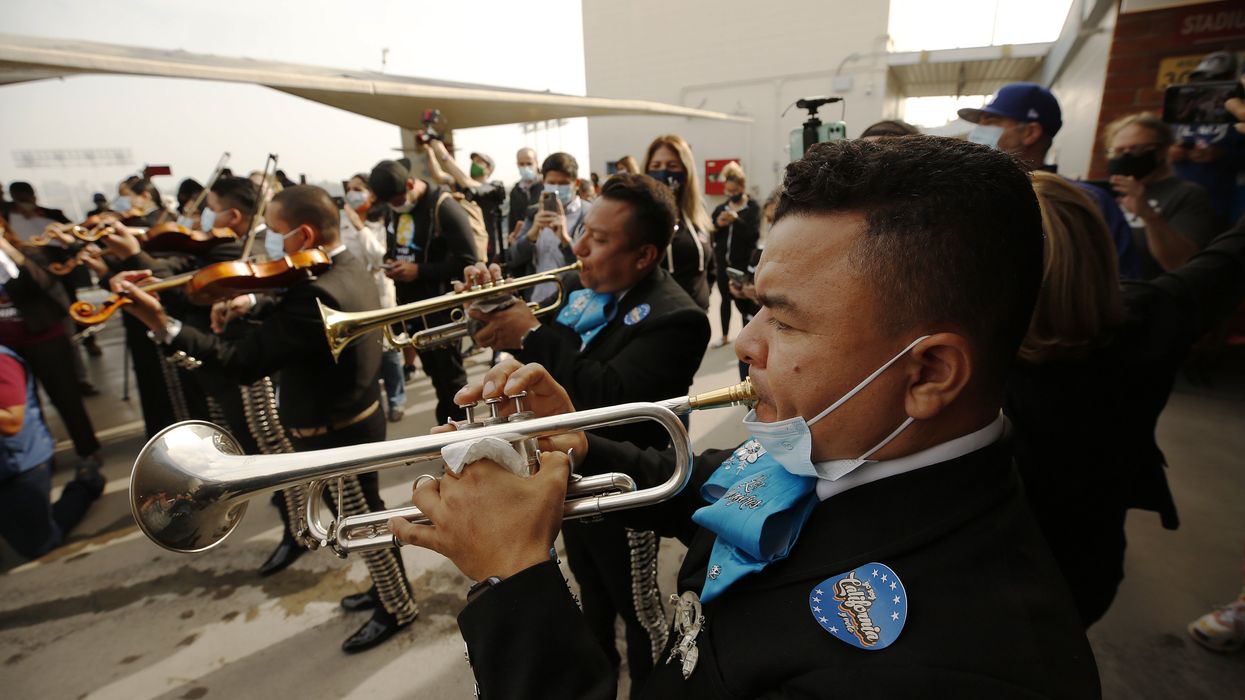Becvar is co-publisher of The Fulcrum and executive director of the Bridge Alliance Education Fund. Nevins is co-publisher of The Fulcrum and co-founder and board chairman of the Bridge Alliance Education Fund.
With less than two weeks until Election Day, Play for the Vote continues seeking to enlist over 5,000 musicians across the country to perform on Nov. 5. Musicians are being sought to perform outside polling sites throughout the country, with the goal of increasing voter turnout by providing a more positive voting experience. Thousands have already joined, including professional musicians, touring artists, music professors, local music teachers and students all across the United States.
“Play for the Vote stems from the idea that voting could be a way for communities to come together through the power of music, as opposed to being a divisive process,” said Play for the Vote founder and Director Mike Block. He, along with select members of the Grammy-winning group Silkroad Ensemble, will be performing on Election Day at the Chicago City Loop Super Site (191 N. Clark Street).
Play for the Vote began in 2020, during a time of significant political and social challenges. Despite the uncertainty, the organization successfully mobilized 1,500 musicians to perform at 700 polling locations nationwide, creating a welcoming and inspiring atmosphere for voters. The overwhelmingly positive response from both musicians and voters demonstrated the powerful impact that music can have on the democratic process.
Looking ahead to future elections, Play for the Vote's goal is to more than double its efforts. The organization is committed to recruiting and organizing 5,000 musicians to perform at 2,200 polling locations across the country.
Musicians interested in participating can sign up online. Upon doing so, they will be asked to claim a polling location and a performance time on Election Day.
Play for the Vote is a nonpartisan initiative, welcoming musicians from all genres and walks of life. It does not endorse any specific candidates or issues; instead, it focuses on fostering a spirit of community and civic responsibility. By bringing music to the polls, Play for the Vote aims to elevate the voting experience and inspire greater participation in our democracy.
Music has a unique ability to bring people together, create shared experiences and remind us of our collective purpose as citizens in a democracy. By placing musicians at polling locations across the country on Election Day, Play for the Vote aims to make voting a celebration of democracy, encouraging more people to participate in the electoral process.
Through the power of music and celebrity, the healing power generated can drown out the divisive voices of the extremes on both the left and the right. Music, theater, poetry and all forms of pop culture have amazing healing and connecting powers and when we join people together their energy for good can be amplified and scaled.
In the words of the great jazz artist Wynton Marsalis, “Music heals people because music is vibration, and the proper vibration heals.” Music indeed brings people together and multiplies their energy. When we join as one, we are more than the sum of our parts.



















 From left to right: Gabriel Cardona-Fox, Bud Branch, Joe Concienne
From left to right: Gabriel Cardona-Fox, Bud Branch, Joe Concienne 